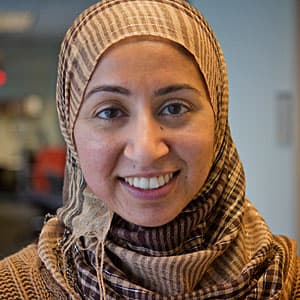Advertisement
Under Receiver's Rule, Lawrence Schools Show Early Gains
Resume
Second in an occasional series called “Project Lawrence”
LAWRENCE, Mass. — Schools here have long suffered from dismal test scores and high dropout rates.
In fact, they were doing so poorly that in 2011 the state Board of Elementary and Secondary Education put the entire Lawrence school system in receivership, making it the only district in Massachusetts under full state control.
Now, more than two years later, test scores and graduation rates are improving. So in theory, the receivership seems to be working, but it's also sparking the ire of the teachers union.
A Receiver, And 'A Different Model'
In 2010, more than one out of every four Lawrence kids dropped out of high school.

Only 35 percent of 10th graders were "proficient" in math, by MCAS results.
The gloomy stats go on and on.
Lawrence schools were a black eye in a state that prides itself on top-notch education.
So in January 2012 the state board appointed Jeff Riley as the receiver for Lawrence schools.
In layman's terms, receiver roughly translates to "school czar." Riley, who commutes from Boston, holds the power of the superintendent and the school committee.
"If I so chose, I could have, you know, fired every teacher in Lawrence and asked that they reapply for their job," he said in a recent interview.
Instead, he claims he opted for more sensible solutions. He cut a third of central office, and replaced nearly half the principals.
"We've got kind of a different model, which is loose-tight administration," Riley said. "If you're doing really well, you get the freedom to fly and do your thing. If you're not doing so well, we're going to give you a ton of support, and try to get you up to that next level."
That means the district is a mishmash of traditional public schools, charters and even a school run by the union.
[sidebar title="Some Key Lawrence Demographic Facts:" width="350" align="right"]
- Population (2012 estimate): 77,326
- Persons under 18 years old (as of 2010): 29.0% (vs. statewide: 21.7%)
- Hispanic or Latino population (as of 2010): 73.8% (vs. statewide: 9.6%)
- Hispanic or Latino students (as of 2013/14 school year): 90.6% (vs. statewide: 17.0%)
- Foreign-born persons (2012 estimate): 36.6% (vs. statewide: 14.8%)
- English language learner students (as of the middle of the 2013/14 school year): 31.4%
- Low-income students (as of 2013/14 school year): 92.4% (vs. statewide: 38.3%)
- Persons with a bachelor's degree or higher (2012 estimate): 10.8% (vs. statewide: 39.0%)
- Sources: U.S. Census Bureau, Mass. Education Dept.
[/sidebar]
Riley says he does not care, so long as it works. He's also a big believer in the power of data. He says it helped improve the city's graduation rates.
"For the first time, we really analyzed kids' transcripts," he said. "We had kids that were out on the street that were missing one or two classes from a high school diploma. We went and found those kids. We got them back in class, and we got them across the stage."
Data has helped guide the entire turnaround. It's the basis for a program Riley created called Acceleration Academy. He says it's like an adrenaline shot of education. A couple thousands kids come to school during February vacation for 25 hours of intensive English.
"This is a program that does two specific things," he detailed. "It recognizes the best teachers from the area as well as across the country, and it matches them with kids that need some extra support."
About a third of kids in Lawrence schools are English language learners, and many struggle on the English portion of the MCAS, so Riley says this extra time is hugely helpful.
"We're trying to give our kids an education that's comparable to your average suburban kid," he said.
And so this year Riley mandated that every first- through eighth-grade classroom in the city extend the school day. There was no choice. It was an edict from central office.
An Extra 301 Hours

The Guilmette Elementary School added an extra 301 hours. That means the school day now starts at 7:30 a.m. with an extra hour and a half of class Monday through Thursday.
"We know that we needed more time to do what we needed to for kids to perform highly," said the school's principal, Lori Butterfield.
But, she says, she worries about teacher burnout.
"I think we were really nervous coming in," she said. "I know I was nervous. I was also nervous about our staff because they have families at home and, you know, they're giving up time on those ends."
Butterfield says she lost about 10 percent of her teachers because they wanted to work in a district with fewer hours.
She's still nervous about losing more teachers. But she says her kids need the extra time, and she can't envision going back to a shorter school day.
At the end of a normal day, Guilmette kids file into class for extra English help; they're grouped according to their proficiency level.
Butterfield says the extra 301 hours also allow the school to add activities you wouldn't normally find in an urban school.
"There's dance, there's robotics, yoga, cooking, art," she said. There's also music and dance.
"Our teachers do more than just like sing songs," Butterfield said. "I mean, they're teaching kids to read music and choreograph dances."
Each school gets some flexibility with how to divvy up the mandatory extra time.

At Arlington Middle School, kids go to the Y on Thursday mornings, so teachers get extra time to prep next week's lessons with their colleagues.
"Our school has changed. It's night and day," said Courtney Breen, who's taught at the Arlington for 10 years. "Just like the student buy-in, even the parent buy-in, our culture has changed like 150 percent. The standards for teachers are as high, if not higher, than they are in the surrounding communities."
But for some teachers those high standards are discouraging.
Teachers 'Always On Edge'
Frank McLaughlin is the president of the Lawrence Teachers' Union. He pointed to an article in the Lawrence Eagle-Tribune that described an exodus of mid-level teachers.
"The biggest problem with receivership is morale amongst teachers," he said. "They're always on edge. They're always looking over their shoulder."
McLaughlin says he's not opposed to the extended school day, but he has serious issues with the new evaluation and compensation systems Riley created.
The union hasn't had a contract in four years, and McLaughlin says Riley has refused to negotiate a new one.
So last year, the union filed a complaint against Riley with the state labor relations board.
They're in the midst of mediation now, so McLaughlin said he couldn't speak on the record in detail. But, broadly, he said Riley acts as if the receivership gives him the right to ignore the voice of teachers.
"They believe it gives them all the power and trumps collective bargaining rights. It doesn't. And they know that," he said.
Riley sees things differently.
He claims he offered the union an olive branch by giving them their own school, and he says his special receiver powers mean the traditional union rules don't apply.
"Clearly we believe deeply in teachers," Riley said. "On the other hand, our focus has to be on kids. We're in receivership for a reason; it can't be business as usual."
The Lawrence turnaround will take at least five years, according to the commissioner of education. But Riley's contract expires in June 2015, so what happens then isn't clear.
The union wants its power back. Riley wants to institutionalize his reforms.
"When we do leave we want to bake in the changes that have been made, so things don't get rolled back," Riley said.
As the power struggle continues, one thing almost everyone can agree on is that many kids are doing better academically than before.
The percentage of students scoring proficient or higher on the math portion of the MCAS went up by double digits last year in third grade, fifth grade, eighth grade and 10th grade.
And the graduation rate is at its highest level in years.
But Riley admits there's plenty of work to do. While the graduation rate is better than anytime in recent history, it's still just 61 percent — not even close to Riley's dreams of suburban success.


This segment aired on March 12, 2014.
